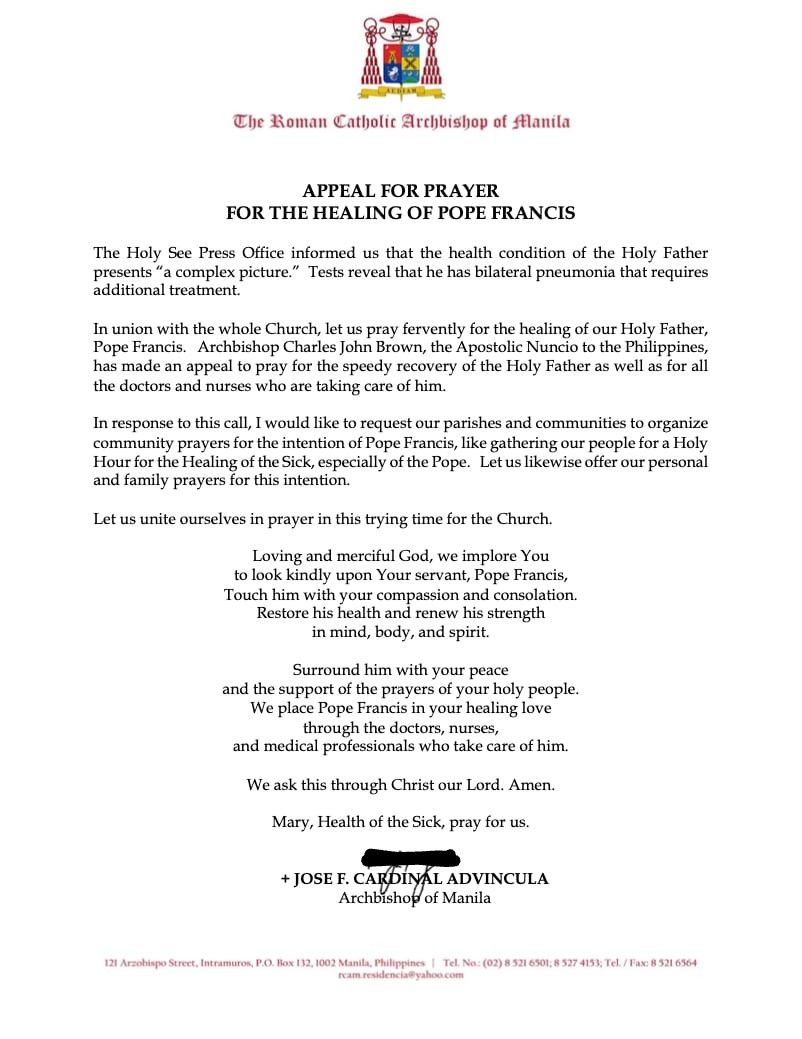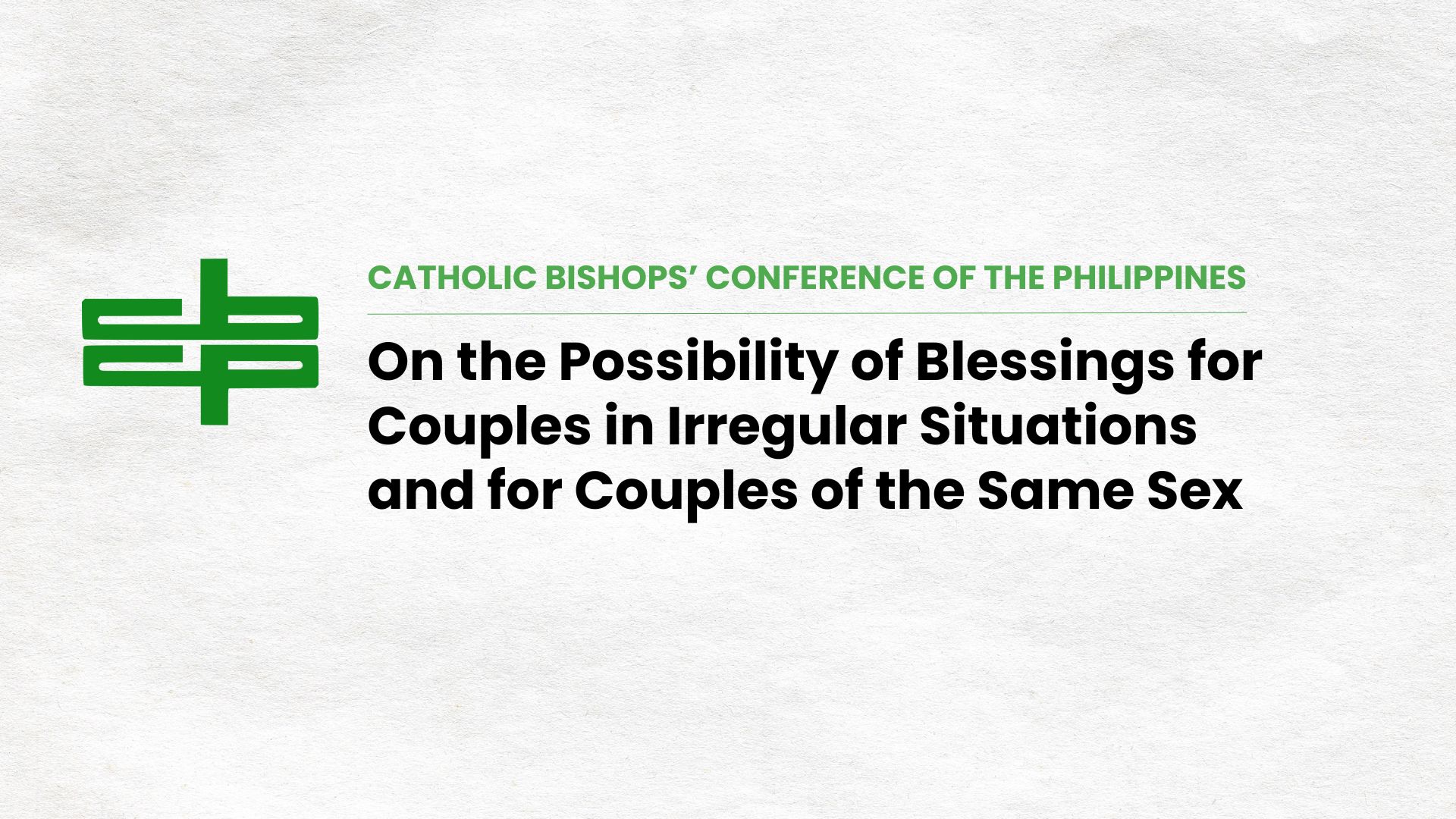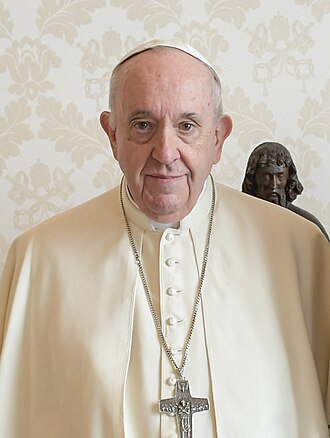
Let us ask the Holy Spirit, who knows how to imprint on our hearts all that is good, to grant us the gift of hope and make us ready to receive it. The hope I speak of is different from optimism. Hope is not boisterous; it has no fear of silence; it sinks deep, as do roots in wintertime. Hope is sure, for it is given by the Father of all truth. It discerns what is good and what is bad. It does not worship what is best (thus not yielding to opti- mism), nor does it rest content with what is worst (it is not pessimistic). Since hope distinguishes between good and evil, it is militant but not in an anxious or obsessive way; it struggles on steadily, like those who know they are running toward a sure goal, as the scripture tells us: “Let us lay aside every weight and the sin that clings so closely, and let us run with perseverance the race that is set before us” (Heb 12:1). What we propose, then, is precisely a militant hope.
To understand the process of discernment that such hope requires, we do well to consider the despairing attitudes that every so often take root in our souls. Sometimes we experience them in obvious ways; other times we feel them in the dark cor- ners of our hearts, those recesses where we “store” the odds and ends of our existence, the shoddy baggage with which we soothe ourselves. These despairing attitudes develop in the same way as does the anti-kingdom: they begin with being barely poor, they continue with vain ambitions, and they end up with bloated pride.
“They begin with being barely poor….” Here I would like to refer to some of the particular ways we fail in poverty, “under the guise of the angel of light.” For example, in our institutions and our diocese we have experienced a considerable decrease in vocations. When we look at our young people, we have at times felt that our legitimate hopes are being threatened, and yet we often refuse to share our pain in this regard; we don’t suffer together as a body. We opt rather for the “wealth” of not suffering. As a result, we expend our energies searching for a solution by blaming some scapegoat for the disaster, or we diagnose the problem in abstract terms, all the while defending ourselves as our hearts cling jealously to their precious treasures (Luke 12:32-34). We leave no space for the mystery of freedom and grace, the mystery that makes us docile and anoints us with true poverty.
“Do not be afraid, little flock, for it is your Father’s good plea- sure to give you the kingdom. Sell your possessions, and give alms. Make purses for yourselves that do not wear out, an unfailing trea- sure in heaven, where no thief comes near and no moth destroys. For where your treasure is, there your heart will be also.” (Luke 12:32-34)
With respect to other painful circumstances in the Church, our institutions, our diocese, and our nation, we disguise the pov- erty of the solutions that are within our reach as wealth, and we often take no notice of how corroded that wealth is, for it is rich only in criticism. We opt to be rich in negativity. Other times we exaggerate the circumstances surrounding a painful fact as if we preferred to have a comfortable seat for watching the tragedy instead of pitching in to solve what is really a family problem. We could go on listing examples, but let these suffice. We should consider in prayer these suggestions of how attached we really are to wealth, and we should ask the Lord to divest us of these attitudes that are rich only insofar as they are despair- ing. May the Lord remind us that the hope of the kingdom comes with birth pangs.
“they continue with vain ambitions …” When sowed on soil that has not been plowed with pain, seed will be con- demned to inconsistent yields (cf. Luke 8:11-15). We are per- meated with vanities of every sort, but the most common type of vainglory among us is defeatism. Vainglorious is the person who prefers to be the general of defeated armies rather than a simple soldier in a squadron that continues to fight on even when it has been devastated. How often we dream of expan- sionist apostolic plans that are really those of defeated generals! Curiously, in such cases, we deny the history of our Church, which is glorious precisely because it is a history of sacrifices, of hopes, of daily struggles. Sometimes we spend endless hours talking and planning about “what needs to be done.” Absorbed in that spirit of “what needs to be done,” we insulate ourselves from reality instead of taking on with humility and dogged dili- gence the lowly work that exhausts us—and it exhausts us sim- ply because, as poor humans expelled from paradise, all work is by the “sweat of our brow.” In contrast, caught up with ideas of “what needs to be done,” our imagination labors feverishly but without making contact with the painful, humble reality of our suffering people. That is vanity, and all vanity is futile.
“And they end up with bloated pride.” This is the pride that so often leads us to despise the humble means of the Gospel; it is the pride that alienates us from the “divine weakness of the Beatitudes.” Such pride does not inspire us to put all our hope in God and to seek him in simple supplication, in continuous prayer, and in the laborious penance of every day. Rather it leads us away from all this and makes us fall short in our pastoral leadership. We manage conflicts badly, or we keep our distance from them in order not to “get our hands dirty,” like the Levite and the priest in the parable of Luke (10:29-37). Maybe we get entangled in conflicts hoping for personal triumph or sectarian advantage, or, conversely, we avoid conflicts and play the role of simple referees of history. But when we avoid conflicts, we run the risk of treating everything with a bland neutrality: all values are equalized, and the supreme goal becomes pluralistic coexistence at the expense of truth and justice. Our vocation to evangelize requires that we cultivate the humility that comes with being stewards, not masters, and we develop this humility by taking on the opprobrium and the contempt of the cross of Christ in our daily labors and in the unraveling of our lives in the service of Jesus Christ who precedes us on the road.
But wanting to justify himself, he asked Jesus, “And who is my neighbor?” Jesus replied, “A man was going down from Jerusa- lem to Jericho, and fell into the hands of robbers, who stripped him, beat him, and went away, leaving him half dead. Now by chance a priest was going down that road; and when he saw him, he passed by on the other side. So likewise a Levite, when he came to the place and saw him, passed by on the other side. But a Samaritan while travelling came near him; and when he saw him, he was moved with pity. He went to him and bandaged his wounds, having poured oil and wine on them. Then he put him on his own animal, brought him to an inn, and took care of him. The next day he took out two denarii, gave them to the innkeeper, and said, ‘Take care of him; and when I come back, I will repay you whatever more you spend.’ Which of these three, do you think, was a neighbor to the man who fell into the hands of the robbers?” He said, “The one who showed him mercy.” Jesus said to him, “Go and do likewise.” (Luke 10:29-37)
I think that we all feel consternation when we realize that the only way for us to escape our despairing attitudes is by accept- ing the opprobrium and contempt suffered by Jesus crucified. They are the true road toward hope. We know from experience that spiritual directors have to work hard to free from various forms of vanity our decision to follow Jesus Christ crucified. Perhaps the example of the wise virgins will help us here, for it teaches us something we need to learn as evangelizers and also as an institution. As you’ll recall, the wise virgins refuse to share their oil with the foolish ones (Matt 25:1-12). Some who read the parable rapidly and carelessly condemn the wise virgins, criticizing them as miserly and selfish. A deeper reading shows us the greatness of their attitude, for they could not share what was unsharable, they could not risk what was unriskable: the encounter with their Lord and the import of that encoun- ter. Possibly in our own evangelizing work we will meet up with opprobrium and contempt if, in our desire to follow the Lord, we fail to examine the oxen or buy the field or get married (cf. Luke 14:16-21).
Someone gave a great dinner and invited many. At the time for the dinner he sent his slave to say to those who had been invited, “Come; for everything is ready now.” But they all alike began to make excuses. The first said to him, “I have bought a piece of land, and I must go out and see it; please accept my regrets.” Another said, “I have bought five yoke of oxen, and I am going to try them out; please accept my regrets.” Another said, “I have just been married, and therefore I cannot come.” So the slave returned and reported this to his master. (Luke 14:16-21)
As we follow the Lord, our humility will give evidence of our poverty, and it will help us know what is “essential,” what is proper, and what is not, without getting lost in the deceits of wealth. The life of God in us is not a luxury but our daily bread; we must nourish it with our prayer and penance. This spirit of prayer and penance, even in moments of great adversity, will help us keep hopeful watch for the ways of God. When we allow space for hope, along with the humble prayer and penance of our (sometimes boring) work, then we free ourselves from those mundane attitudes that are riddled with “spiritual wordli- ness” (as DeLubac likes to call it). Such attitudes are despairing because they sink their roots in wealth, vanity, and pride.
For Prayer and Reflection
To conclude our prayer, I suggest that we contemplate Mary, the “humble Daughter of Zion,” who can soothe our insatiable longings for wealth, vanity, and pride. It might help us here to recite slowly this simple hymn from the breviary:
Let me see, simply see;
Let my sight be turned only to you,
to behold you wholly and wordlessly,
to tell you all with reverent silence.
Not disturbing the breeze on your forehead,
but cradling my breached solitude
in your eyes as loving Mother,
I rest in your nest of transparent earth.
The hours collapse; death and
the trash of life, with all their noise,
nip at the heels of the thoughtless.
Let me barely hold you, Mother, in my gaze,
as my heart is silenced in your tenderness,
in the chaste hush of white lilies. Amen.
This is an excerpt from the book Open Mind, Faithful Heart: Reflections on Following Jesus. These reflections, written by Jorge Mario Bergoglio and chosen for this volume by him, are deeply rooted in the Scriptures and in the pastoral experiences and concerns of the author. They are relevant to everyone who seeks to grow in understanding the call to follow Jesus. They also constitute the best introduction to the energetic and wise spirituality of Pope Francis.










